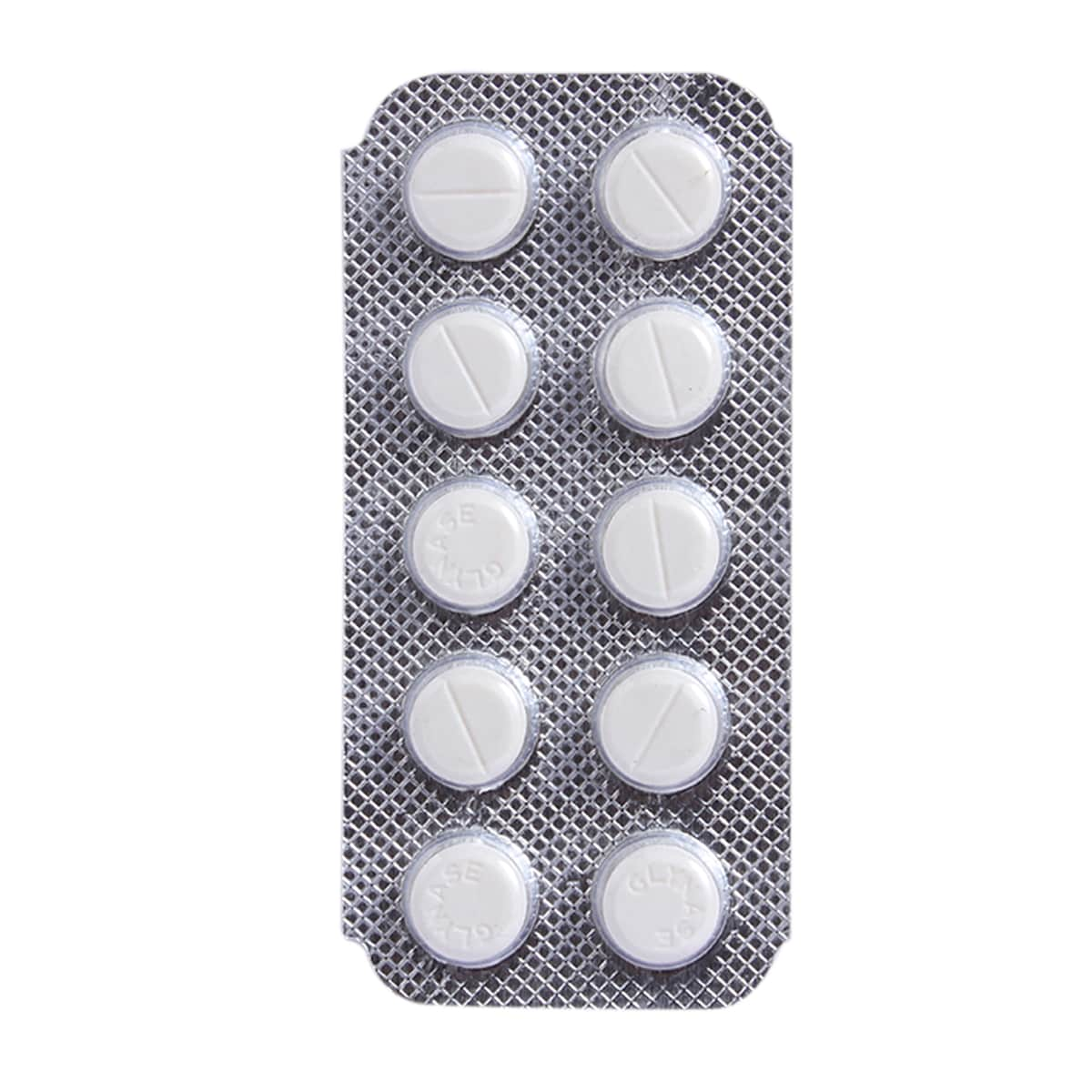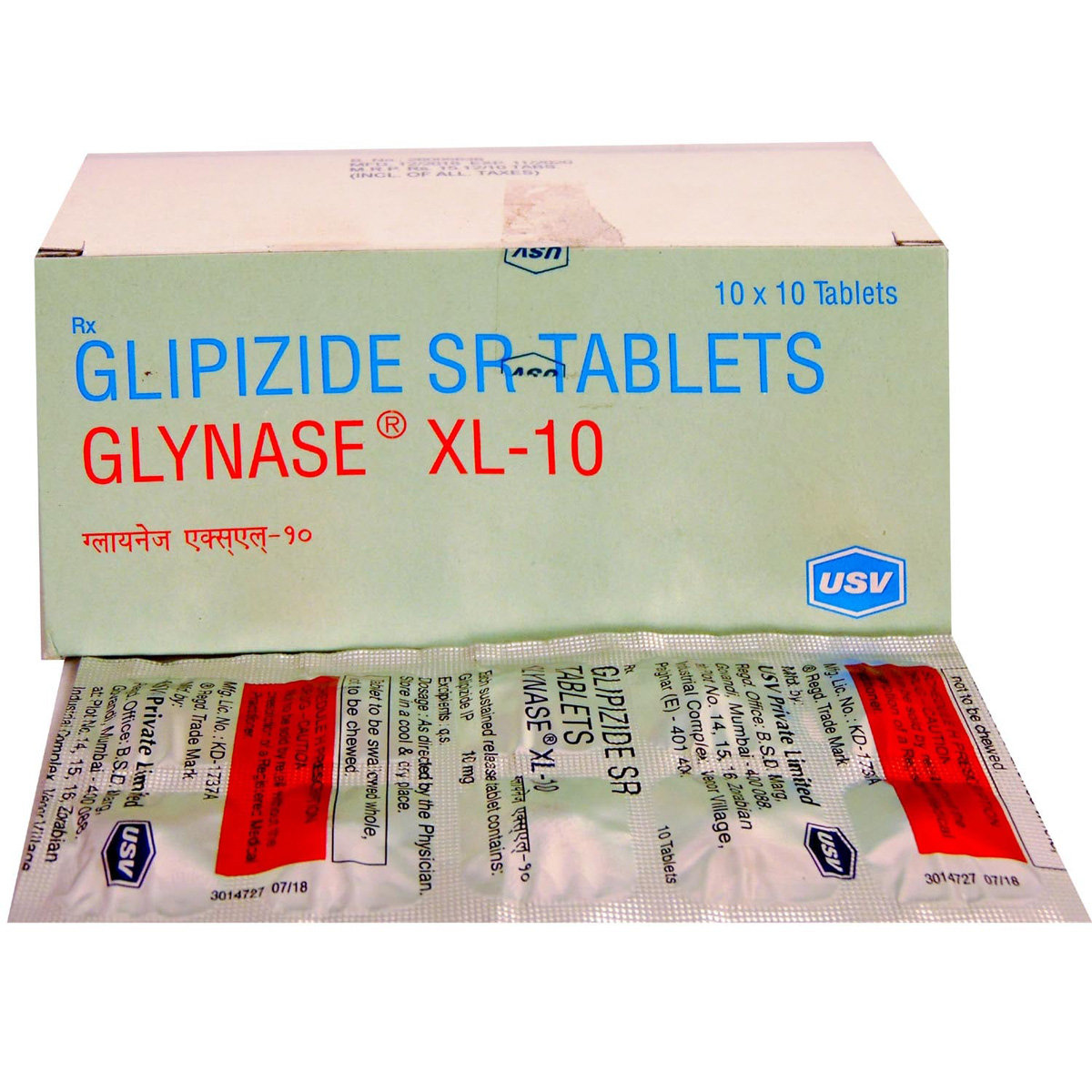Glipizide
About Glipizide
Glipizide belongs to the group of antidiabetic medicines called 'sulfonylureas' used to treat type-2 diabetes mellitus when diet and exercise alone cannot control their blood sugar levels. Type-2 diabetes mellitus is also known as non-insulin-dependent diabetes. Diabetes is a condition in which blood glucose levels are above normal.
Glipizide contains 'Glipizide' which works by increasing insulin production by stimulating insulin secretion from the beta cells of the pancreas, thereby reducing high blood glucose (sugar) levels.
You are advised to take Glipizide for as long as your doctor has prescribed it for you, depending on your medical condition. In some cases, you may experience certain common side effects such as hypoglycemia (low blood glucose levels), nausea, diarrhoea, and stomach pain. Most of these side effects do not require medical attention and will resolve gradually over time. However, you are recommended to consult your doctor if you experience these side effects persistently.
Glipizide is not effective in people with type 1 diabetes or for treating serious hyperglycemia (high blood glucose levels). Consult your doctor before taking Glipizide if you are pregnant or breastfeeding. Glipizide is not recommended for children. Avoid alcohol consumption while taking Glipizide as it might increase side effects. Glipizide may cause dizziness and drowsiness, so drive only if you are alert. Inform your doctor about all the medications you are taking and your health condition to rule out any unpleasant side effects.
Uses of Glipizide
Medicinal Benefits
Glipizide belongs to the group of antidiabetic medicines called 'sulfonylureas' used to treat type-2 diabetes mellitus. Glipizide is prescribed for the condition of type 2 diabetes when diet and exercise alone cannot control their blood sugar levels. Glipizide works by increasing insulin production by stimulating insulin secretion from the beta cells of the pancreas, thereby reducing high blood glucose (sugar) levels.
Directions for Use
Storage
Side Effects of Glipizide
- Hypoglycemia (low blood glucose levels)
- Nausea
- Diarrhoea
- Stomach pain
Drug Warnings
Glipizide is not effective in people with type 1 diabetes or for treating serious hyperglycemia (high blood glucose levels). Do not take Glipizide if you are allergic to any of its contents. Take Glipizide with caution if you have kidney and liver problems. Consult your doctor if you are pregnant or breastfeeding. Avoid alcohol consumption while taking Glipizide as it might increase side effects.
Drug Interactions
Drug-Drug Interactions: Glipizide may interact with pain killers (aspirin, ibuprofen), anti-diabetic (sitagliptin, canagliflozin, metformin, dulaglutide, liraglutide, insulin glargine), diuretic (furosemide), anti-hypertensives (metoprolol), drug used to treat hyperthyroidism (levothyroxine), and blood thinner (warfarin).
Drug-Food Interactions: Avoid alcohol consumption while taking Glipizide as it causes unpleasant side effects.
Drug-Disease Interactions: Inform your doctor if you have heart diseases, hypoglycemia (low blood glucose levels), gastrointestinal narrowing, diabetic ketoacidosis (build-up of acids in the blood), glucose-6-phosphate dehydrogenase (G6PD) deficiency, hypernatremia (low sodium levels), kidney, or liver problems.
Drug-Drug Interactions Checker List:
Safety Advice

Alcohol
unsafeYou are recommended to avoid alcohol consumption while taking Glipizide to prevent unpleasant side-effects.

Pregnancy
unsafeDo not take Glipizide if you are pregnant. Your doctor may switch you to insulin injections during your pregnancy. It is not recommended to take Glipizide during the last month of pregnancy.

Breast Feeding
cautionConsult your doctor if you are breastfeeding. Your doctor will decide if Glipizide can be taken by breastfeeding mothers or not.

Driving
cautionGlipizide may cause dizziness and drowsiness, drive, and operate machinery only if you are alert.

Liver
cautionDose adjustment may be needed. Glipizide should be used with caution in patients with liver impairment/liver disease. Please consult your doctor if you have a liver impairment or any concerns regarding this.

Kidney
cautionDose adjustment may be needed. Glipizide should be used with caution in patients with kidney impairment/kidney disease.Please consult your doctor if you have kidney impairment or any concerns regarding this.

Children
unsafeGlipizide is not recommended for children as safety and efficacy have not been established.
Habit Forming
Diet & Lifestyle Advise
- Include foods rich in healthy carbohydrates and fibre, fruits, whole grains, and vegetables in your diet.
- Try eating food at regular intervals. Do not skip meals. Also, try not to overeat.
- Follow a healthy diet and walk for at least 45minutes to complement treatment with Glipizide.
- Maintain a healthy weight by exercising regularly.
- Rest properly, and avoid stress by doing meditation or yoga.
Special Advise
- Regularly monitor blood glucose levels and H1B1AC test (every 3 months) while taking Glipizide.
- Try not to skip any doses and take Glipizide for as long as your doctor has prescribed it for you.
Patients Concern
Disease/Condition Glossary
Type-2 diabetes mellitus: It is also known as non-insulin-dependent diabetes, a chronic disease that keeps the body from utilizing insulin properly. Diabetes is a condition in which blood glucose levels are above normal. Insulin is the hormone that controls sugar levels in your blood. People with type 2 diabetes either do not produce sufficient insulin or the insulin produced cannot perform its function in the body (insulin resistance). Middle-aged or older individuals are most likely to suffer from type 2 diabetes, hence it is also called adult-onset diabetes. Type 2 diabetes symptoms include lack of energy, tiredness, frequent urination, excess thirst, dry mouth, blurry vision, constant hunger, weight loss, and itchy skin.
FAQs
Glipizide works by increasing insulin production by stimulating insulin secretion from the beta cells of the pancreas, thereby reduces high blood glucose (sugar) levels.
Glipizide may sometimes lower the blood glucose levels more than normal, leading to hypoglycemia. Regularly monitor your blood sugar levels while taking Glipizide. Hypoglycemia symptoms include headache, dizziness, drowsiness, shakiness, faintness, confusion, and visual disturbances.
Hypoglycaemia may occur following prolonged or severe exercise, during illness, alcohol consumption, low food intake, or when Glipizide is taken along with other antidiabetic medicines.
Maintain a healthy diet by regular intake of carbohydrates such as bread and products containing starch and sugar. Eat your meals regularly, and do not exercise heavily for a longer duration with an empty stomach. Try to keep sugar candies and when you feel symptoms of low blood sugar like excessive hunger, sweating, feeling tired, dizziness, feeling hungry, feeling shaky, and fast heartbeat, immediately take it. This will increase the level of glucose (sugar) in your blood and you will feel normal.
Please do not stop taking Glipizide without consulting your doctor as it may cause an increase in blood glucose levels. Continue taking Glipizide for as long as your doctor has prescribed it to you. Do not be reluctant to speak with your doctor if you experience any difficulty while taking Glipizide.
If you are going to have a major operation or have recently had a serious infection or illness; in such cases, diabetic control may be lost. Consult your doctor if you have any concerns regarding this; your doctor may ask you to temporarily take insulin instead of Glipizide to control blood glucose levels.
Glipizide might sometimes affect laboratory test results. Inform the person performing the tests that you are taking Glipizide.
Do not use Glipizide if you have a condition called diabetic ketoacidosis (too much acids in the blood) and ever have had an allergic reaction to glipizide.





